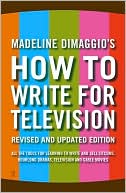Category Books
- Fiction Books & Literature
- Graphic Novels
- Horror
- Mystery & Crime
- Poetry
- Romance Books
- Science Fiction & Fantasy
- Thrillers
- Westerns
- Ages 0-2
- Ages 3-5
- Ages 6-8
- Ages 9-12
- Teens
- Children's Books
- African Americans
- Antiques & Collectibles
- Art, Architecture & Photography
- Bibles & Bible Studies
- Biography
- Business Books
- Christianity
- Computer Books & Technology Books
- Cookbooks, Food & Wine
- Crafts & Hobbies Books
- Education & Teaching
- Engineering
- Entertainment
- Foreign Languages
- Game Books
- Gay & Lesbian
- Health Books, Diet & Fitness Books
- History
- Home & Garden
- Humor Books
- Judaism & Judaica
- Law
- Medical Books
- New Age & Spirituality
- Nonfiction
- Parenting & Family
- Pets
- Philosophy
- Political Books & Current Events Books
- Psychology & Psychotherapy
- Reference
- Religion Books
- Science & Nature
- Self Improvement
- Sex & Relationships
- Social Sciences
- Sports & Adventure
- Study Guides & Test Prep
- Travel
- True Crime
- Weddings
- Women's Studies
How To Write For Television » (Revised and Updated)

Authors: Madeline Dimaggio, Madeline DiMaggio
ISBN-13: 9781416570455, ISBN-10: 1416570454
Format: Paperback
Publisher: Simon & Schuster Adult Publishing Group
Date Published: December 2008
Edition: Revised and Updated
Author Biography: Madeline Dimaggio
Madeline DiMaggio has written for TV under contract to Paramount Studios and as a TV freelancer. Her work includes over forty hours of produced scripts for successful sitcoms, one-hour dramas, TV pilots (both half hour and one hour), soaps, animation, documentaries, Movies of the Week, cable movies, and films.
Book Synopsis
TV Writing the Right Way!
In this guide for every student of the small screen and every scriptwriter dreaming of breaking into the business, writer-producer Madeline DiMaggio hands you the tools of the trade. With dozens of examples from today's hit shows, as well as perennial classics, DiMaggio walks readers through the scriptwriting process, from learning how to watch TV like a writer to developing your script, pitching it, and eventually sealing the deal. DiMaggio answers the questions on every aspiring television writer's mind, with chapters on:
The tools of scriptwriting Hooks that sell Creating the pilot Developing the episode, step by step How to create riveting characters Writing long form and cable movies Adaptations and collaborations Marketing your script
DiMaggio combines her own experience with advice to writers from others in the trade, including agents, producers, animators, and more. This readable, reliable book has been a trusted reference for nearly two decades and is now revised to include the most up-to-date information from today's television climate, from writing for cable, reality, and TV-movie formats to the ever-evolving face of the sitcom. A must-read for anyone aiming to write for TV, How to Write for Television will continue to help budding writers reach their small-screen goals and will prepare them for working in the rapidly changing world of TV.
Table of Contents
1 Introduction 1
The Story of Kevin Falls
2 The Tools of Scriptwriting 9
Locales
Narrative/Action
Dialogue
The Scene
3 Restrictions of the Medium and How You Can Make Them Work for You 33
Time Limitations
Characters Are Set
Locales Are Set
Budget Limitations
4 The Hooks That Sell 45
Hook 'em Fast
The Quick Setup
The Star Is Pivotal
Personal Involvement for the Star
Twists and Turns in the Plot
Powerful Act Ends
A Good Runner
The Button
The Teaser and the Tag
5 Thoughts to Consider Before Writing Your Spec 72
6 Writing the Half-Hour Sitcom 79
Comedy and Collaboration
Writing Funny: Can It Be Taught?
Structure: The Most Essential Element
7 Writing the Hour Episode 104
The One-Hour Structure
Creating Suspense
The Hour Setup
Build to the Act Ends
8 Developing an Episode Step by Step 116
Serials and Parallel Storylines
9 How to Create Riveting Characters 122
A Character's Back Life/Present Life
Professional Life
Personal Life
Private Life
The Compelling Characteristic
10 The Television Pilot 138
The Pilot Concept
Filling in the Concept
Treatments
11 Movies for Television and Cable 149
The Two-Hour Movie: The Basic Three-Act Structure
The Movie of the Week: The Seven-Act Structure
What Is Meant by High Concept?
12 Developing the Two-Hour Movie 230
Step 1 Defining the Spine
Step 2 Establishing the Time Frame
Step 3 Breaking Down the Turning Points
Step 4 Broadstroking the Beats
Step 5 Developing Character
Step 6 Scenes/Sequences
Step 7 Interior Voice
Step 8 First Draft
Step 9 Rewrites
Step 10 Polish
13 Adaptations, Collaborations, and My Biggest Mistakes241
Adaptations
Collaborations
My Biggest Mistakes
A Word from Animation Writer Stan Berkowitz
A Word from Reality Writer Gardner Linn
14 So It's Written. What do I do Now? 263
A Word from Agent Mitchel Stein
15 The Most Frequently Asked Questions About Marketing 275
16 A Final Note from the Author 287
Glossary 290
Appendix A Resources 297
To Find Scripts
To Buy Scripts
For Networking
For Links and Information
Screenwriting Software
Appendix B Fellowships and Writing Competitions 301
Acknowledgments 305
Index 307
Subjects
 Books on Film
Books on Film  Filmmaking
FilmmakingEntertainment
 Television
Television  Television - Screenwriting
Television - ScreenwritingReference
 Writing
Writing  Playwriting & Screenwriting
Playwriting & ScreenwritingNonfiction
 Entertainment
Entertainment  Books on Film
Books on FilmNonfiction
 Entertainment
Entertainment  Television
TelevisionNonfiction
 Reference
Reference  Writing
Writing
